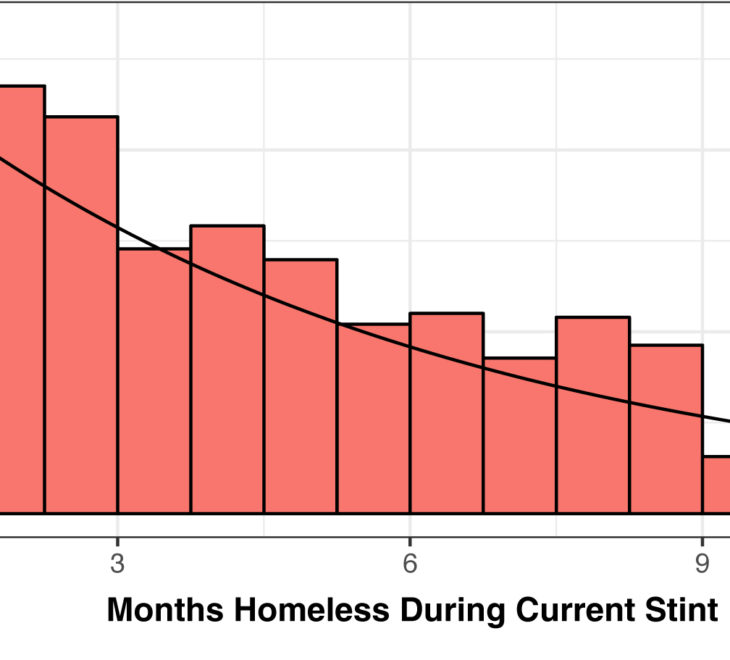 The Economic Roundtable conducted a survey of defense-linked and other high technology firms in Ventura County in February-March 1998. The survey was commissioned by the Economic Development Collaborative-Ventura County (EDC-VC). The purpose of the survey was to determine:
The Economic Roundtable conducted a survey of defense-linked and other high technology firms in Ventura County in February-March 1998. The survey was commissioned by the Economic Development Collaborative-Ventura County (EDC-VC). The purpose of the survey was to determine:
- employment and sales trends in defense-related and other high technology firms;
- changing levels of defense dependency of defense-related firms;
- ongoing or planned efforts of defense-related firms to enter commercial markets; and
- the specific financial needs of defense-related and other high technology firms.
The goal of the survey was to match the financial needs of defense-related businesses with available funding sources, and to assist them in conversion efforts. A broader goal of the survey was to increase the awareness by defense-related and other high technology firms of available funding sources, and open or reinforce channels of communication and information exchange between the public and private sectors in Ventura County.
Overview
A survey instrument was designed by the Economic Roundtable in consultation with the EDC-VC. An initial mailing was sent to 840 firms in February 1998. This was followed by a second mailing in March 1998 to firms that had not responded to the first mailing. A total of 185 firms returned completed surveys. An additional 93 letters were returned undelivered by the Post Office. This resulted in a response rate of 25 percent.
Defense Dependency
Fifty-two percent of the survey responses were from defense-linked firms that had at least 10 percent of their total sales in defense markets in 1990 or 1997. Of the defense-linked firms, 40 percent reported high defense dependency in 1997 (at least 50 percent of sales in defense markets).
Defense-linked firms in Ventura County were less dependent on defense markets in 1997 than they were in 1990. The average defense dependency of defense-linked firms fell from 51 to 42 percent between 1990 and 1997. Likewise, the defense dependency of firms weighted by number of workers fell from 70 to 51 percent during the same time period.
Employment and Sales Trends
Total employment in firms with low defense dependency increased by 63 percent between 1990 and 1998. Total employment in non-defense firms grew by 57 percent, and total employment in firms with high defense dependency fell by 5 percent between 1990 and 1998.
Consistent with these trends, firms with low defense dependency and non-defense high technology firms were more likely to have experienced growing sales in the past year (1997). Sixty-five percent of firms with low defense dependency reported growing sales, compared to 61 percent of non-defense high technology firms and 47 percent of firms with high defense dependency.
Selling Defense Products in Commercial Markets
Forty-two percent of the defense-linked firms are currently marketing defense-related technologies or products to commercial markets. Firms with low defense dependency were more likely to be selling defense products to commercial markets. Small defense-linked firms (fewer than 20 employees) were more likely to be selling defense products to commercial markets than were larger defense firms.
Three in four defense-linked firms (77 percent) expect sales to commercial markets to increase over the next few years. Only 1 percent expect decreasing commercial sales. Seventy-two percent of firms with high defense dependency expect commercial sales to increase, and 80 percent of firms with low defense dependency expect commercial sales to increase.
Financial Needs
Forty percent of all survey respondents indicated interest in obtaining financing to expand commercial sales. Forty-six percent of defense-linked firms were interested in financing, compared to 33 percent of non-defense high technology firms.
Firms were most interested in obtaining working capital or credit. Thirty percent of all survey respondents were interested in obtaining working capital or credit, while only 13 percent expressed interest in long-term financing and 11 percent wanted high-risk capital.
Only 56 percent of firms interested in obtaining financial assistance had contacted their bank. Of this group, about one-third reported that they had received a positive response from their bank. The remaining firms reported mixed or negative responses to their requests for financing.
Business Strategies
The dominant business strategy stated by firms was to increase the company’s share of its primary market. Two in three firms stated that they were pursuing this strategy. This was the main strategy for both defense-linked and non-defense firms, and small and medium-size firms. Within the defense-linked group of firms, firms with low defense dependency were twice as likely to be following this strategy as were firms with high defense dependency.
Chapter Headings:
- Executive Summary
- Introduction
- Ventura County Industry Employment Trends
- The Ventura Capital Market Connection Survey
- Defense Dependency and Sales to Commercial Markets
- Financial Needs
- Business Strategies












